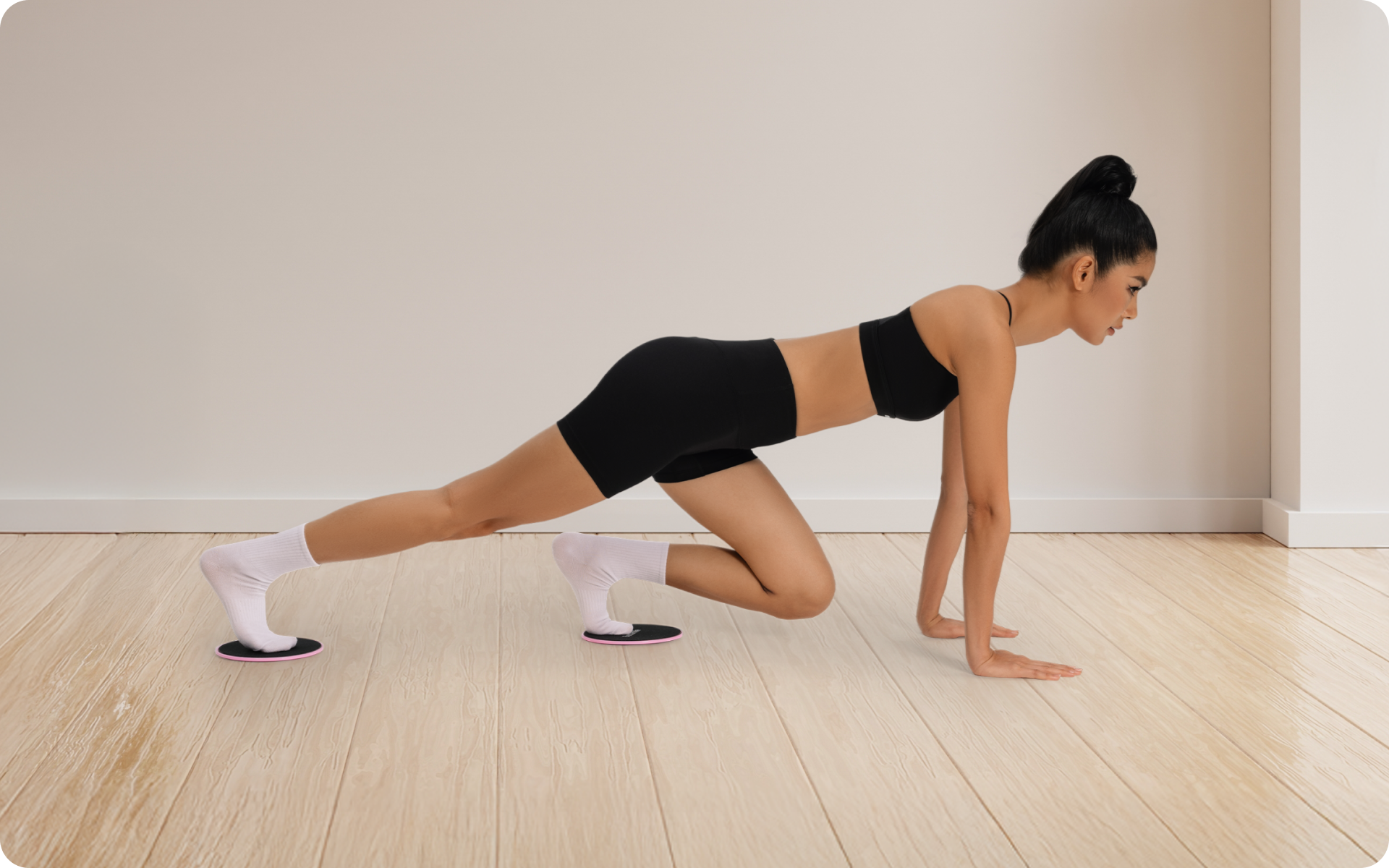It’s difficult to keep your weight stable and it can seem alarming when it tends to shift up or down by a few pounds. This is completely normal and can be a result of many factors that affect your body, including what you eat or drink and how much exercise you get on any given day. When these things fluctuate from day to day, so will your weight.
What people don’t generally realize is that their scale can vary by as much as 5 pounds in any direction, depending on when they weigh themselves.
Early morning versus late evening for example – which means a person might weigh 170 at 8 pm but 175 at 10 am the next morning. In order to keep yourself from panicking, here are a few things you should know about weight fluctuations and how to handle them.
Why Did I Gain 5 Pounds in 24 Hours?
Weight fluctuation is a normal but often misunderstood phenomenon. When you realize you’ve gained 5 pounds in a day, your first instinct may be to panic. However, this weight gain is usually temporary and nothing to worry about.
If you struggle to even flirt with the idea of giving up your favorite foods or working out till your legs give way – BetterMe app is here to breathe a fresh perspective into the way you view the weight loss process! Check out the app and experience the fun side of fitness and dieting with BetterMe!
It’s impossible to gain five pounds of fat in a day – to do this, you’d have to eat over 20,000 calories in 24 hours. When your scale shows a higher number, it’s usually water weight (11). Here are 10 reasons why you may be surprised by the number on your scale in the morning.
You Started a New Exercise Regimen
If you’ve done a particularly intense workout, whether it’s a sprinting session or a spinning class, your body may retain more water than usual after the exercise (4). This is because stress and micro-tears in muscle fibers lead to a small amount of inflammation in the area.
You also may be storing more glycogen in your muscles to fuel your workouts if you’ve started a new or more intense workout regimen. That glycogen is stored along with water, which can add weight, as can your growing muscle tissue.
You Drank a Lot of Alcohol in the Evening
Drinking alcohol makes you retain both water and salt through osmosis, which means that alcohol draws more water out from your bloodstream into your tissues (9). You’ll usually retain even more fluid if you eat a salty meal or snacks with your drinks.
You Ate a Salty Meal in the Evening
Excess intake of sodium causes water retention after you eat it. This is because your kidneys retain fluid in an effort to dilute the salt until they can filter it out of your blood (5). So if you eat a salty meal, you may gain 5 pounds overnight due to this retained water.
You’re on a High-Protein Low-Carb Diet
If you’re following a high-protein low-carb diet, you’ve probably been warned that many protein foods naturally contain sodium and that this may cause weight gain.
Once again, excess sodium causes water retention and weight gain, which is why you might have put on 5 pounds overnight while following this type of diet.
You’re Dehydrated
Dehydration causes your body to retain excess water, which can lead to 5 pounds of weight gain overnight (6). When you feel thirsty and drink a lot of fluid all at once, you’ll absorb the extra fluid quickly and it will show up on the scale within 24 hours.
You Have a Food Intolerance
If you have a food intolerance or allergy, eating the offending food may result in inflammation in your gastrointestinal tract (3). This can cause fluid retention due to swelling.
You’re About to Have Your Period
Many women notice that they put on 5 pounds right before their period due to bloating caused by their menstrual cycle. If you’re retaining water, your weight can go up by 5 pounds overnight (8).
You’re on Medication
If you were recently prescribed any medication, it’s important to take note of its potential side effects. Some medications cause bloating and fluid retention.
You Ate Late at Night
Eating late at night may cause weight gain over time due to an increase in body fat, but not in one night. Eating too close to bedtime can also disturb your sleep cycle, which is why you may wake up feeling fatigued after having eaten so late at night (2).
You may also experience a temporary increase in weight after eating, simply due to the volume of the foods and waste still in your digestive tract from the late-night meal.
You’re Pregnant
If you’re pregnant, it’s perfectly normal to gain 5 pounds overnight. You’re most likely experiencing weight fluctuation and fluid retention due to your hormones (7). However, it’s incredibly important that you speak with your doctor before you make any changes to your diet or exercise regimen.
How to Weigh Yourself for Accurate Results
Knowing when and how to weigh yourself can help you overcome the worry that comes with weight fluctuations. Here are some tips to get you started:
Use the Same High-Quality Scale Every Day
If you’re trying to monitor weight fluctuations, it’s important to have a high-quality scale that measures your weight accurately. Make sure the scale can measure small changes in weight – if yours can’t do this, there’s no point using it.
There are some scales out there that can detect even tiny changes in water retention, so make sure you get one of them for more accurate results.
Weigh Yourself at the Same Time Every Day
It’s best to weigh yourself at the same time every day (such as first thing in the morning) as your weight is affected by what you’ve eaten or drunk throughout the day.
Your fluid intake and sodium levels play a big part in how much you weigh, so if you change the times when you step on the scale each day, you won’t get consistent results (10).
Wear Minimal Clothing
Whenever possible, try to weigh yourself without wearing any clothes at all. The extra weight of your clothing will throw off your body weight by approximately 1 – 5 pounds, depending on what type of clothing you’re wearing.
If you need to wear something that is light and airy for hygienic purposes, keep a relatively small towel nearby so you can subtract the weight of the towel from your calculation.
You should also avoid weighing yourself immediately after a shower – give yourself some time before you step onto the scale. This way, all excess water will be absorbed into your skin and you’ll get a more accurate reading.
Whether you’re a workout beast or just a beginner making your first foray into the world of fitness and dieting – BetterMe has a lot to offer to both newbies and experts! Install the app and experience the versatility first-hand!
Use Other Measurements to Gauge Fluctuations
Your weight can fluctuate by 10 lbs or more in a day based on changes in fluid intake, salt consumption, the time of day you step onto the scale, and your menstrual cycle.
Weighing yourself is definitely an effective way to monitor these fluctuations, but if you’re really concerned about how much you’ve gained or lost overnight, it may be a good idea to compare with other measurements instead.
For example, measure your waistline before you go to bed one night. You can do this by measuring from right below your belly button all the way around your body at the narrowest part of your midsection.
When you wake up in the morning, measure your waist again using the same tape measure. If there’s been a 5-pound difference in water weight overnight, but you’ve also gained or lost an inch in your waistline, this means you haven’t necessarily increased fat mass. Instead, you’ve just drunk a little more water.
Read more: 7-Day Weight Loss Low-Carb Diet: Choose High-Protein, High-Fiber, or Ultra-Low-Carb
FAQs
Is it normal to gain 5lbs in a day?
It’s not uncommon to gain 5 pounds in a day, particularly if you’ve done a heavy workout or consumed a lot of fluids and salty foods. This weight is usually water weight and will fluctuate throughout the day.
A common fear among people who are trying to lose weight is that they’ve gained fat overnight when they step on the scale and see a sudden increase. However, it’s important to understand that this is generally not the case and there are many factors that can contribute to such fluctuations.
It is highly unlikely you will gain 5 pounds of fat in one day. In order to gain 5 pounds of fat, you would need to consume approximately 18,000 extra calories (1). Most people are unable to consume this amount in a single day.
And even so, gaining fat isn’t an instant process. It takes time for your body to break down and store excess calories as fat.
So, while it may seem you’ve gained 5 pounds of fat overnight, it’s more likely just a temporary change in water weight. For the same reason, you may weigh less in the morning some days.
How do I know if it is water weight?
You’ll know it’s water weight if you can identify any other contributing factors, such as a heavy workout, high sodium intake, or alcohol consumption. Another way to tell is by monitoring your waistline measurements and seeing if they fluctuate along with the scale.
Here are other signs that you may be carrying extra water weight:
- Swelling in the hands, feet, and legs: This is a common sign of water retention. If your rings are tighter than usual or your shoes don’t fit as well, you may be retaining water.
- Fluctuating weight: If your weight fluctuates by several pounds over a short period of time, this could be due to water weight. Water weight can cause your weight to rise by as much as 2 to 5 pounds in a single day.
- Bloating and puffiness: Bloating is a common symptom of water retention. You may feel puffy, bloated, or swollen.
- Feeling stiff or uncomfortable: Some people with water retention feel stiff or uncomfortable, particularly in their joints.
- Indentations in the skin: Pressing a finger into the skin can leave an indentation, which can be a sign of edema, a type of water retention. This is common in areas such as the ankles or feet.
Does water weight disappear on its own?
Water weight, particularly if it is gained due to sodium intake, exercise, or hormonal fluctuations, can go away on its own. However, there are some steps you can take to reduce water weight.
Drinking plenty of water can actually help flush out excess fluids in the body. This may seem counterintuitive, but when your body is dehydrated, it tends to hold onto water as a means of preventing dehydration. By remaining hydrated, your body will be more likely to release excess water weight.
Managing your sodium intake can also help reduce water retention. Eating too much salt can cause the body to retain more fluids, so you should try to limit your sodium intake and focus on nutritious, low-sodium foods instead.
You can also try increasing your potassium intake, as this mineral helps regulate fluid balance in the body.
In addition, incorporating regular exercise into your routine can help reduce water weight by promoting sweat and flushing out excess fluids. You may lose 3 pounds overnight, which is how water weight works.
The Bottom Line
Weight fluctuation is natural and there are many factors that can cause it. The most important thing to remember when you’re trying to monitor your weight is that the numbers on the scale don’t necessarily tell the entire story. Weighing yourself daily can be a beneficial way to monitor your overall health, but if these fluctuations cause stress in your life, it may help to focus more on what you’re putting into (and onto) your body and less on the fluctuations.
DISCLAIMER:
This article is intended for general informational purposes only and does not serve to address individual circumstances. It is not a substitute for professional advice or help and should not be relied on for making any kind of decision-making. Any action taken as a direct or indirect result of the information in this article is entirely at your own risk and is your sole responsibility.
BetterMe, its content staff, and its medical advisors accept no responsibility for inaccuracies, errors, misstatements, inconsistencies, or omissions and specifically disclaim any liability, loss or risk, personal, professional or otherwise, which may be incurred as a consequence, directly or indirectly, of the use and/or application of any content.
You should always seek the advice of your physician or other qualified health provider with any questions you may have regarding a medical condition or your specific situation. Never disregard professional medical advice or delay seeking it because of BetterMe content. If you suspect or think you may have a medical emergency, call your doctor.
SOURCES:
- Can You Gain Weight In One Day? 11 Overnight Weight Gain Causes (2023, womenshealthmag.com) j
- Eating Late Negatively Affects Sleep Pattern and Apnea Severity in Individuals With Sleep Apnea (2019, nih.gov) a
- Food intolerance and mucosal inflammation (2015, nih.gov) b
- I Just Started Exercising – Why Am I Gaining Weight? (n.d., clevelandclinic.org) c
- Increased salt consumption induces body water conservation and decreases fluid intake (2017, nih.gov) d
- Intracellular Edema and Dehydration: Effects on Energy Metabolism in Alveolar Macrophages (1976, science.org) e
- Pregnancy and birth: Weight gain in pregnancy (2018, nih.gov) f
- Premenstrual syndrome (PMS) (2018, womenshealth.gov) g
- The Diuretic Action of Weak and Strong Alcoholic Beverage in Elderly Men: A Randomized Diet-Controlled Crossover Trial (2017, nih.gov) h
- What to Know About Weighing Yourself (2021, webmd.com) i
- Why Does My Weight Fluctuate So Much? Causes Of Weight Gain, Loss (2023, womenshealthmag.com)












